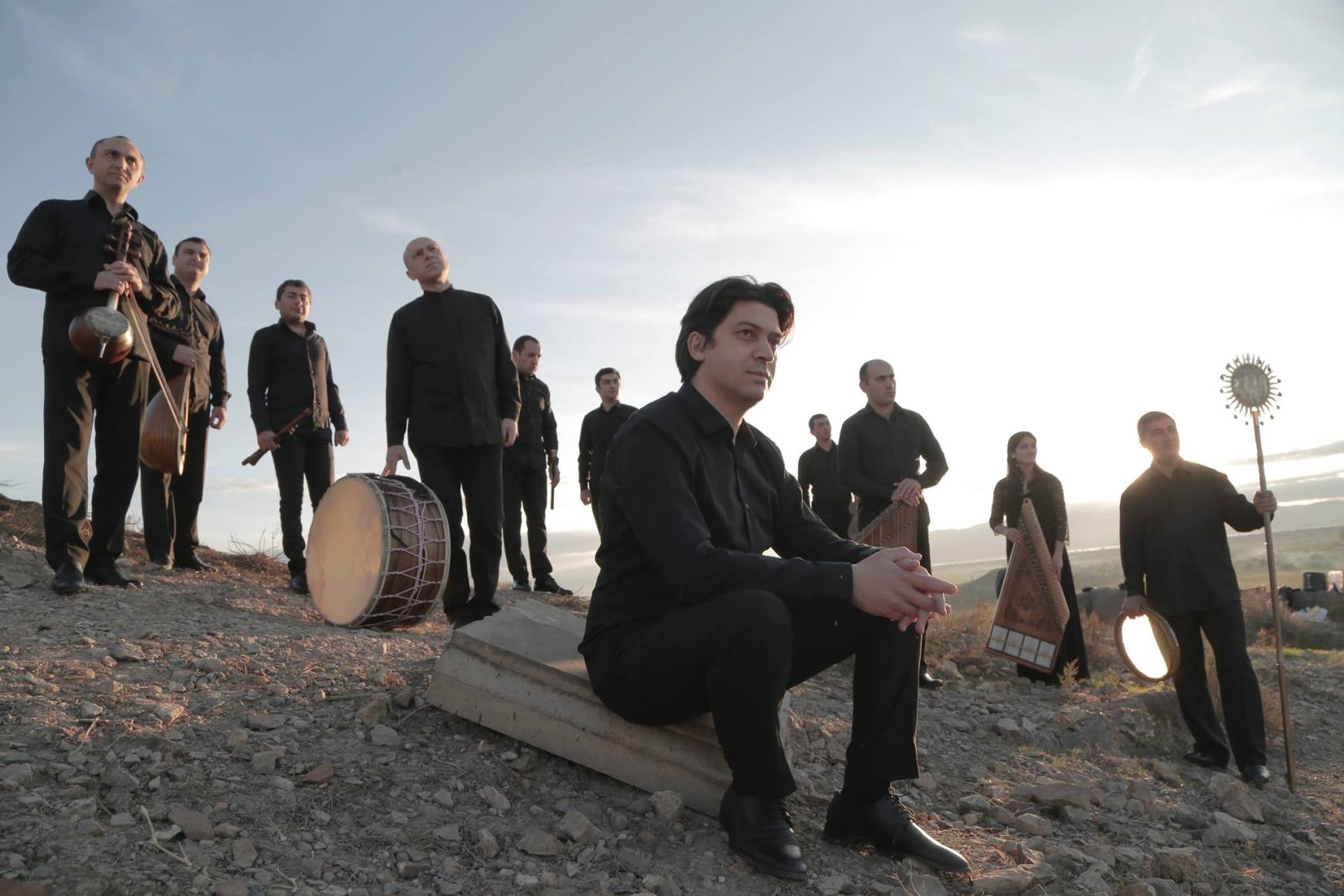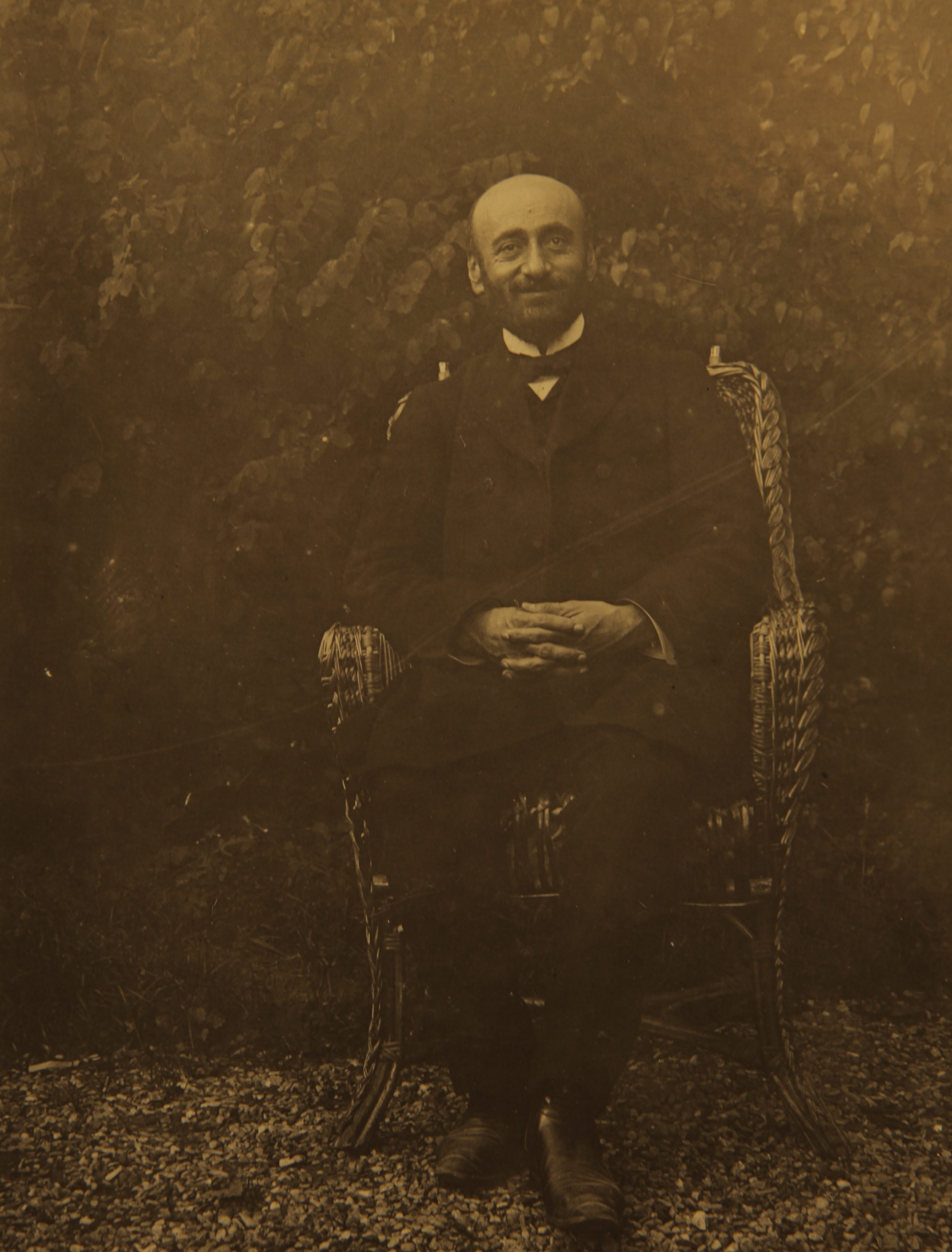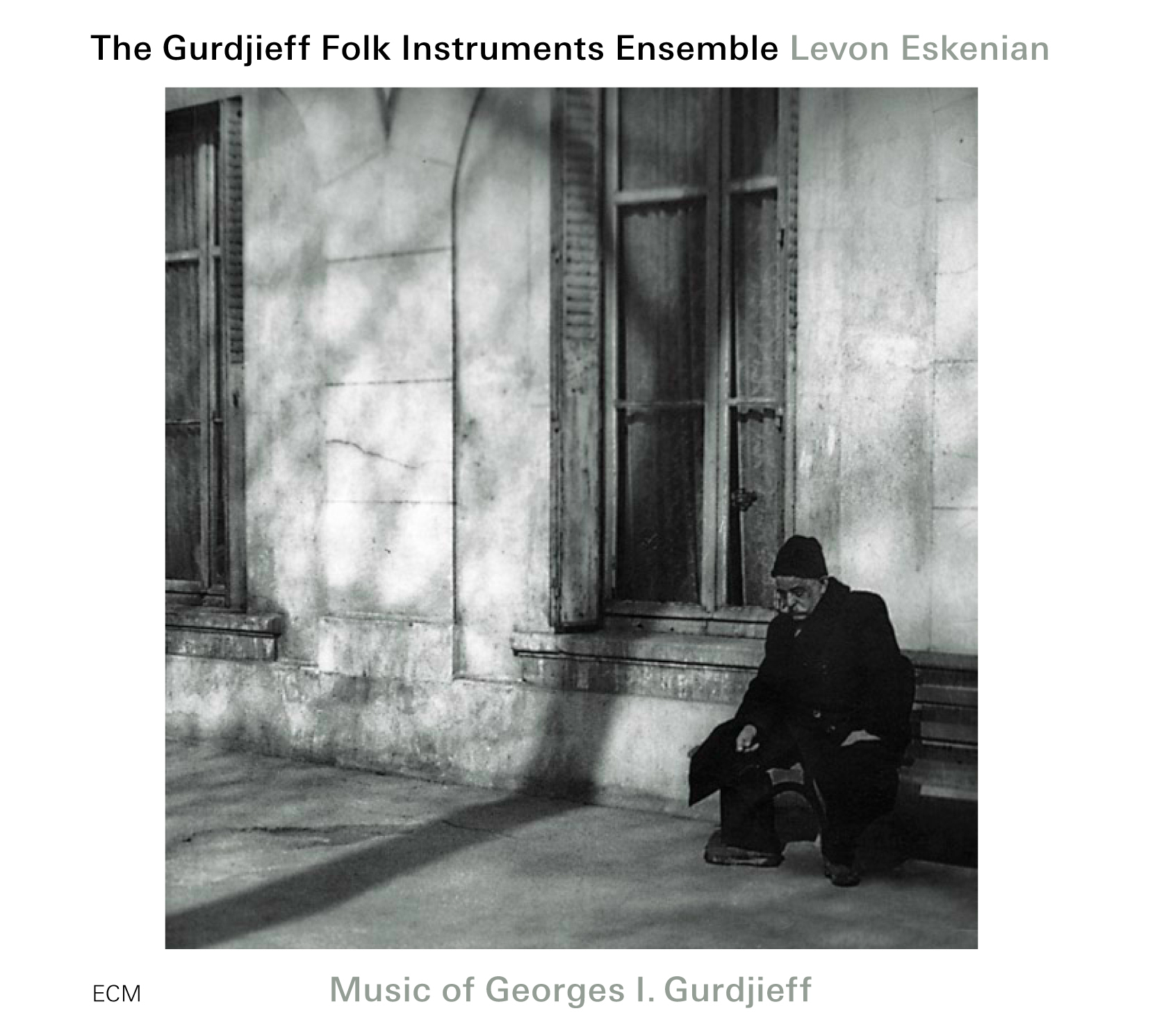
“Man lives his life in sleep, and in sleep he dies.”—G.I. Gurdjieff
At first blush, it may seem like an odd pairing: Gurdjieff and Komitas. The father of modern Armenian music, Komitas Vartabed the itinerant priest who recorded thousands of Armenian ballads before the onslaught of the Catastrophe and G. I. Gurdjieff—the mystical guru of experimental notation, part fakir and yogi, Buddha and charlatan, the man with the famously thick moustache and shaved head, inventor of a supposed “Fourth Way.” The son of a Pontic Greek father and an Armenian mother, Gurdjieff was born in cosmopolitan Gyumri in 1866. His writings were esoteric like those of his contemporaries such as the anthroposophists Anna Blavatsky and Rudolf Steiner, and they drew their inspiration from Christian, Hindi and Muslim traditions from the proverbial East and West. And while his music was itself minimalist and mystical, his personality was outsized: he was a great teacher but also prone to fits of rage. A description of his living quarters that I remember reading about in my late teens made a great impression on me, like some garish mixture of an opium den and a Middle Eastern bordello lined with oriental carpets. I remember looking around sheepishly at my freshman dorm room and thinking how sparse they seemed in comparison, how dreadfully boring!
The Yerevan-based Gurdjieff Ensemble was founded in 2008 by music director Levon Eskenian in order to play Thomas de Hartmann’s “ethnographically authentic” arrangements of the composer’s wonderfully esoteric music. In addition to Eskenian, other ensemble members include Davit Avagyan, Armen Ayvazyan, Norayr Gapoyan, Eduard Harutyunyan, Emmanuel Hovhannisyan, Mesrop Khalatyan, Avag Margaryan, Aramayis Nikoghosyan, Vladimir Papikyan and Meri Vardanyan. The group has won consistent praise in the music press; their first album “Music of Georges I. Gurdjieff” on ECM Records was awarded the prestigious Edison Award in the Netherlands. In the September 27 concert “A Night to Honor Komitas” at New York’s Symphony Space, the Gurdjieff musicians, accompanied by Lusine Grigoryan’s gorgeously plangent piano solos—will perform a few of his works including The Spinners, Trinity, and Asian Songs and rhythms, Numbers 11 and 40, as well as Narekatsi’s lovely tenth century Havik and Tagh, both transcribed by Komitas.
150 Years of Komitas

As the program title indicates, the bulk of the evening will honor the lilting and beautifully sonorous works of Komitas Vartabed. Many of these pieces can be found on the Gurdjieff Ensemble’s second album “Komitas” (also on ECM Records), which explores the ties that bind Armenian sacred and secular music. Born Soghomon Soghomonian in 1869, Komitas was also an ethnomusicologist, choral conductor and teacher. He miraculously survived deportation, but he suffered greatly from the horrors that he witnessed during the Armenian Genocide. He was interned for the last 15 years of his life in a mental hospital in Paris. The songs that he collected in his youth describe simple lives of work, love and family life in Western Armenia before the dreadful events. It is no exaggeration to say that much of Armenian music history would have disappeared into the conflagration of the Medz Yeghern had it not been for Komitas’ painstaking work of transcription and interpretation.
More than Just Kanonikal
The Gurdjieff Ensemble will perform a full program of Komitas classics, including the popular Kele, Kele and Antsrevn egav (The Rain Arrived). Several dances from the Shushi region are also included (Shushi Unabli and Shushi Marali) as are Karouna and the lovely Msho shoror from the Mush region. Like Komitas before him, Eskenian is especially committed to keeping the original character and sound of these compositions alive, so the Gurdjieff Ensemble renditions are in a very real way a voyage back through time: “I would like to emphasize that the program we are playing besides being musically pleasant to the ear is also historically informative,” Eskenian explains. “Take Msho Shoror, for example, a series of pieces that used to be played at pilgrimages to St. Karapet Monastery, one of the main Armenian pilgrimage sites before the Genocide—this is something that every Armenian should have the chance to hear at least once in their lives.” To achieve this unique sound, the Gurdjieff ensemble plays over 16 instruments: some like the duduk, the oud and the dohl will be familiar to listeners knowledgeable in Armenian and Middle Eastern music. Then there are others still, which carry such wonderfully resonant names as the tmbuk and the pku. The least that can be said when listening to these delicately-rendered compositions is that whatever these Armenian-trained musicians are doing, it works!
Have a listen to the Gurdjieff Ensemble’s heavenly duduks, delectable kanons and a sound that is as rich as it is heartfelt—then rush to Symphony Space to experience it live. Komitas and Gurdjieff: music to be honored, music to be savored.



I love their music! Thanks for exposing Gurdjieff and this amazing ensemble to the Armenian community. Hardly anyone knows about them.
Thanks David. I have always liked Gurdjieff although his writings are often difficult to decipher–which is part of the point, lol, I believe :)
Did you enjoy the concert? Sorry I missed you there.
I love your music very much.Listen to this CD almost every day. Looking forward to your concert in Taiwan ^^